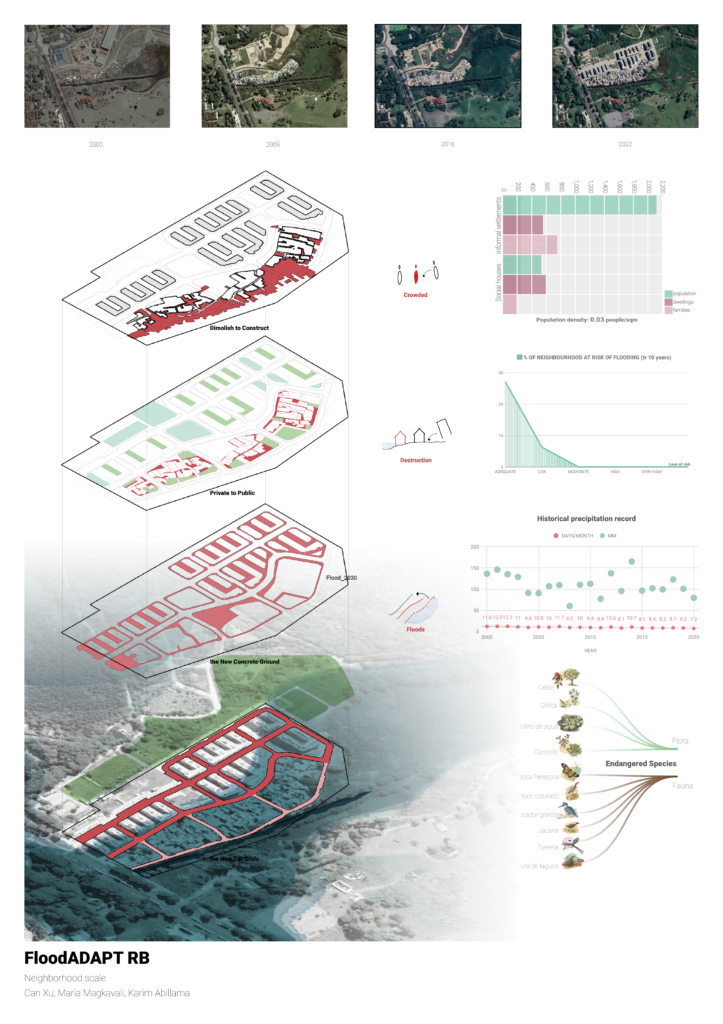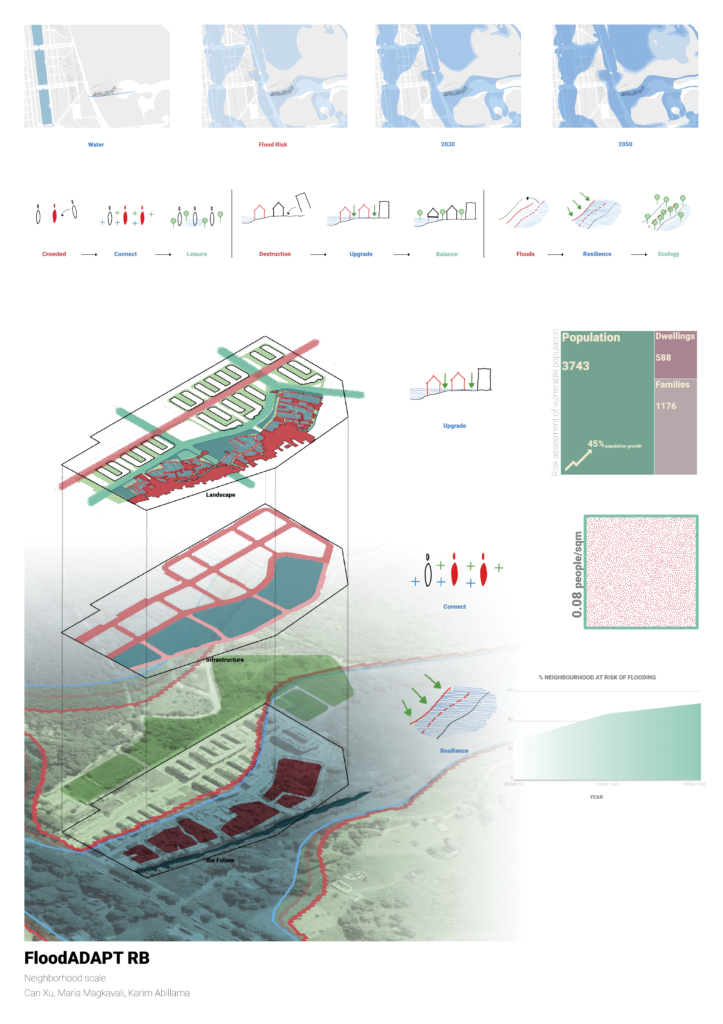Barrio Rodrigo Bueno
Understanding the environmental challenges and climate change, some cities are affected earlier than others. For this we are focusing on Buenos Aires, Argentina on a particular neighborhood, Rodrigo Bueno. After analyzing the current environmental impact challenges and assessing the future impacts we have suggested a flood resilient strategy and adaptative interventions for public realm.
Actual Scenario and with 10 years thresholds
Actually more than 2500 people live in this neighborhood, located on a ecological territory, surrounded by a natural reserve that is home for endangered species.
Generally human induce changes to the environment and to the climate change, increase the intensity and the frequency to the floods, and this causes concerns for the environment. In the coming years, 45% of Rodrigo Bueno Neighborhood is under a moderate risk of flooding.

Worst Future Scenario and with 100 years thresholds
With the help of the future flooding risk analysis, more than 50% of the neighborhood will be under water by the 2050. Where as, 45% increase in population is expected. Under consideration, the combination of flood risk and increasing population density hence 743 families will be under the risk of relocation.

Implementation Strategy for Barrio Rogrido Bueno
Our implementation focuses on the general idea of flood adaption. Specifically our focal point contains the aspects of flood management, biodiversity and people.

Restoring the waterfront, with flood capture terraces, helping the water collection and reuse.
Balance the biodiversity on the small scale as for the big scale, engaging more green infrastructure in the neighborhood that help populate the diversity of endangered species.
Connect back the people and neighborhood by engaging towards a healthier and more sustainable living.

“FloodADAPT BR” is a project of IAAC, Institute for Advanced Architecture of Catalonia developed in the Master in City & Technology for the seminar Landscapes in Transition, MACT 02, 2022/23
Students: Karim Abillama, Maria Magkavali and Can Xu
Faculty: Felipe Vera and Camila Arretche

